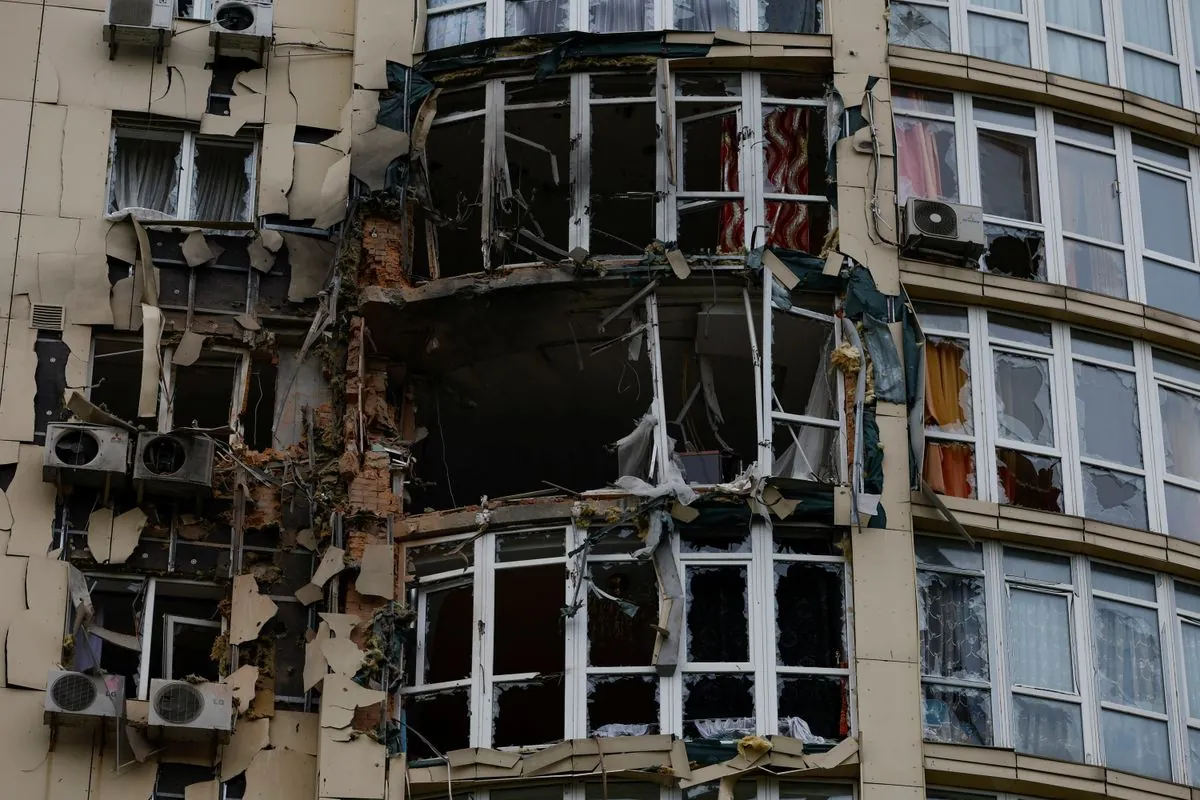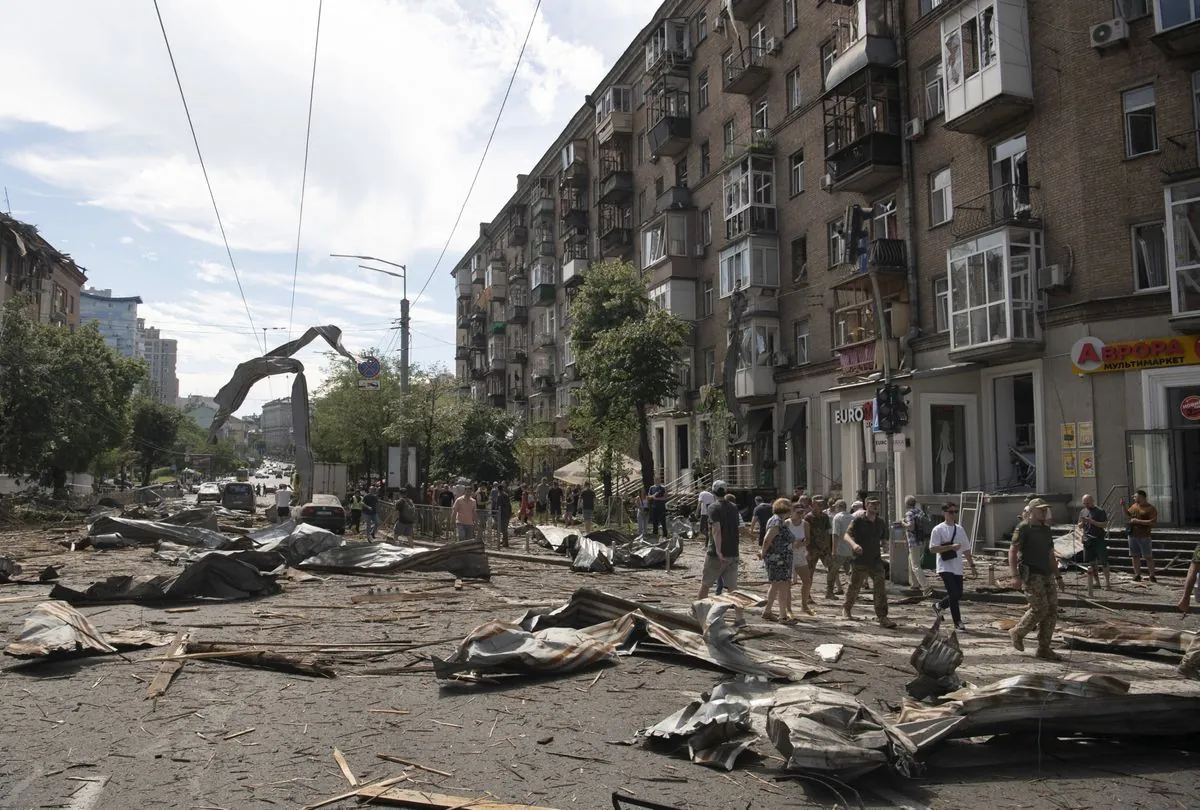Russia Launches Massive Aerial Attack on Ukraine, Zelenskyy Urges Western Support
Russia conducted a heavy aerial assault on Ukraine, with most missiles and drones intercepted. President Zelenskyy calls for Western allies to lift restrictions on long-range strikes, gaining EU diplomatic support.

In a significant escalation of hostilities, Russia has launched its third major aerial assault on Ukraine within a four-day period. The attack, which occurred on August 28, 2024, involved a barrage of missiles and unmanned aerial vehicles (UAVs) targeting various locations across the country.
According to Ukraine's air force, Russian forces deployed five missiles and 74 Shahed drones during the offensive. Ukrainian air defenses demonstrated their effectiveness by successfully intercepting two missiles and 60 drones. An additional 14 drones reportedly failed to reach their intended targets.
In Kyiv, the nation's capital, debris from destroyed drones fell in three districts, causing minor damage to civilian infrastructure but fortunately resulting in no injuries. This incident highlights the ongoing threat faced by Ukraine's urban centers, which have been subjected to long-range strikes since Russia's invasion began on February 24, 2022.

President Volodymyr Zelenskyy has intensified his appeal to Western allies, urging them to lift restrictions on Ukraine's ability to conduct long-range strikes within Russian territory. In a statement, Zelenskyy emphasized the need for more proactive measures to counter Russian aggression:
"All our partners should be more active — much more active — in countering Russian terror. We continue to insist that their determination now — lifting the restrictions on long-range strikes for Ukraine now — will help us to end the war as soon as possible in a fair way for Ukraine and the world as a whole."
The European Union's top diplomat has expressed support for Zelenskyy's request, potentially signaling a shift in Western policy regarding Ukraine's military capabilities.
In response to the ongoing conflict, Ukraine has acknowledged its involvement in recent strikes on oil depots deep within Russian territory. These attacks, targeting facilities in the Rostov and Kirov regions, are part of Ukraine's strategy to disrupt Russia's logistical infrastructure supporting its war efforts.
Meanwhile, Russian authorities claim to have thwarted an overnight attack on Crimea, the Black Sea peninsula annexed by Russia in 2014. The Russian Defense Ministry reported the destruction of three Ukrainian sea drones, while Mikhail Razvozhayev, the Russia-installed governor of Sevastopol, stated that four aerial drones and three sea drones were neutralized "at a significant distance" from the peninsula's shore.
As the conflict approaches its two-and-a-half-year mark, the use of advanced technologies such as drones and long-range strike capabilities continues to shape the nature of warfare in the region. The ongoing debate over the extent of Western support for Ukraine's military operations remains a crucial factor in determining the future course of the conflict.


































